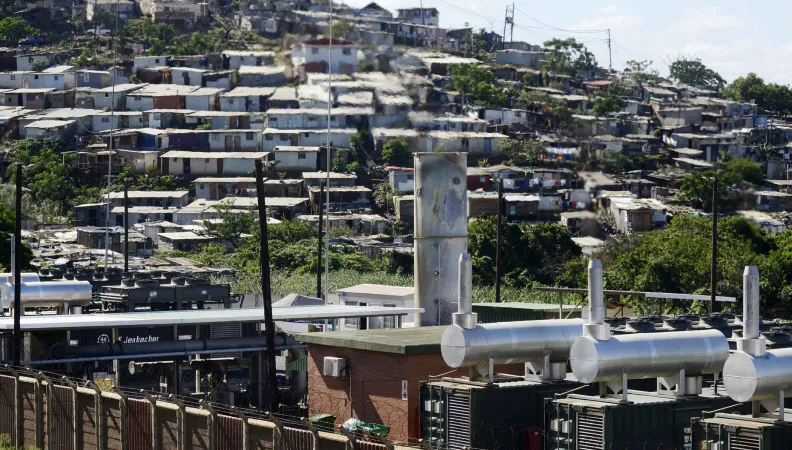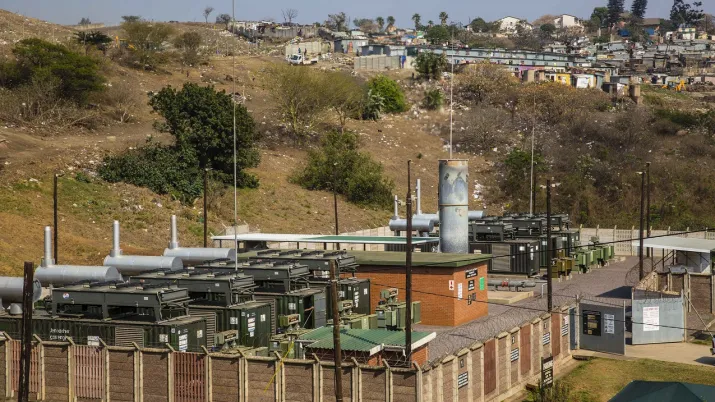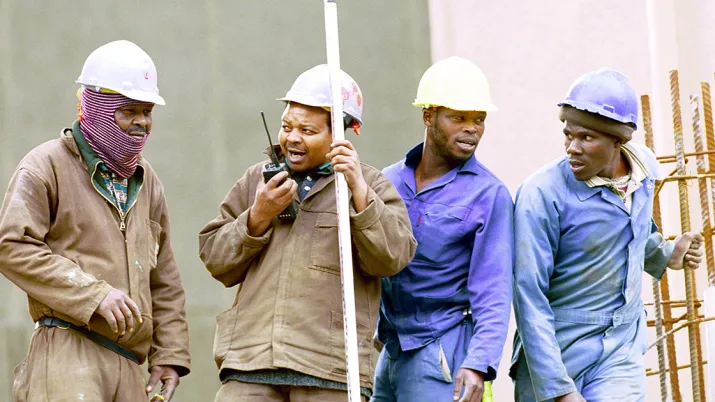Share the page
Skills ecosystem mapping in the Nkangala district (South Africa)

-
Project start date
-
2024Status
Completed
-
Project end date
-
2025
-
Project duration
-
1 year
-
AFD financing amount
-
32000
-
Country and region
-
Location
-
Nkangala district municipality, Mpumalanga province, South Africa
-
Partners
-
Research program
South Africa has embarked on the necessary path of a just transition, which will result in job losses in the coal sector, at a time when unemployment in the country is already very high. AFD, in partnership with the REAL Centre of the Wits University, is conducting a detailed analysis of the skills ecosystem that could feed into the various initiatives to support local authorities and communities of the Nkangala district in meeting this challenge.
Context
With one of the highest youth unemployment rates in the world, South Africa’s planning for a just transition needs to take into account the vulnerabilities of its youth cohorts, especially those that can be qualified as “not in education, employment or training” (NEET). For example, a recent study conducted in the framework of the EU-AFD Research Facility on Inequalities revealed that the Mpumalanga province, the region with the highest exposure to the coal exit, has had a NEET youth rate of over 37% for the past decade, with almost three-quarters of them living in income-poor households.
Since 2019, the National Business Initiative (NBI) has been spearheading a multi-faceted and multi-sector partnership, which focuses on expanding and growing pathways for young people to access Installation, Repair and Maintenance (IRM) occupations. The IRM initiative is strategically aligned to various initiatives of the government to drive inclusive recovery and revitalisation of the economy, particularly in the aftermath of the Covid-19 pandemic. It has subsequently been incorporated as part of the Presidential Youth Employment Intervention (PYEI). The Initiative works on the premise that, by supporting township-based IRM entrepreneurs to strengthen and grow their businesses, and by linking them to localised market opportunities, there will be a concomitant increase in the demand for skilled labour, which could lead to the creation of employment opportunities. Therefore, it is a direct response to the youth unemployment challenge.
Collaborating closely with the NBI, the Centre of Researching Education and Labor (REAL Centre) contributed its expertise to the comprehensive analysis of the four key regions identified in Phase 1 of the IRM skills ecosystem mapping project: Atlantis (Western Cape), Mandeni (KwaZulu-Natal), Mamelodi (Gauteng), and Kathorus (Gauteng). Building upon the success of this initial phase, the REAL Centre will now expand the project's scope to the Nkangala district municipality, which is one of the three districts of Mpumalanga province.
This project is part of the Extension of the EU-AFD Research Facility on Inequalities. Coordinated by AFD and financed by the European Commission, the Extension of the Facility will contribute to the development of public policies aimed at reducing inequalities in four countries: South Africa, Mexico, Colombia and Indonesia over the period 2021-2025.
This work is also part of AFD's dialogue with the South African authorities on the just transition and the reduction of inequalities.
Objectives
This research project will conduct a detailed analysis of the skills ecosystem that could feed into the various initiatives to support local authorities and communities in the Nkangala district, which concentrates the coal-fired power plants that will be closed as a result of just transition policies.
Phase 1 of the project revealed that an IRM skills ecosystem mapping project is crucial for addressing inequality by thoroughly analysing the socioeconomic and demographic profiles of diverse townships in South Africa.
By identifying specific skill gaps and understanding the challenges faced by Small, Medium, and Micro Enterprises (SMMEs) in these areas, the study can inform targeted interventions aimed at reducing inequality in access to employment and economic opportunities.
Furthermore, by examining the role of Technical and Vocational Education and Training (TVET) institutions and conducting a comprehensive literature review, the study ensures that proposed interventions are evidence-based and tailored to the needs of the communities studied.
Ultimately, the study's approach of generating actionable insights in collaboration with stakeholders aims to drive meaningful impact and promote inclusive economic development in underserved regions, contributing to efforts to reduce inequality, to advance the principles of just transition and to foster a more inclusive society.
Method
Building on Phase 1 of the IRM skills ecosystem mapping, researchers will apply the following method:
- They will set the context for the Nkangala district through desktop research and a few selected key informant interviews;
- They will collect primary data and set up fieldwork through stakeholder mapping workshops and key informant interviews to collect data;
- They will then provide an initial narrative on the overarching local skills ecosystem from the site mapping exercise and will draw on the document review and contextual work on the Nkangala district. Drawing on Spours’ (2019) work on ecosystems, they will use three core elements: the dimensions of verticalities, horizontalities and mediation to understand and analyse the skills ecosystem Nkangala district and to guide the cross-site analysis, building on the work undertaken during Phase 1.
Research findings
You will find below the different research papers related to this project:
Contact
-
Anda DAVID
Economist, scientific coordinator of the EU-AFD Research Facility on Inequalities

Discover other research projects
Evaluation of local stimulus effects in South Africa: Jobs and grants programmes
Completed
2022 - 2023



